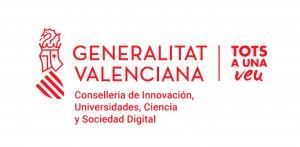The responsible editor of the website is the Príncipe Felipe Research Centre.
This website uses cookies to provide you with the best possible experience. Cookies store information in your browser and perform functions such as recognizing you when you return to our site, or helping our team understand which sections you find most interesting and useful.
Cookies are used to store data in your browser and personalize your experience on future visits. Information such as language, hash code, browser information, and Google Analytics data is saved to distinguish users and limit request percentages, as well as performance data.
You can accept the use of cookies for the proper functioning of the website by clicking Accept, or reject them by clicking the Reject button.
More information in our Cookie Policy.


